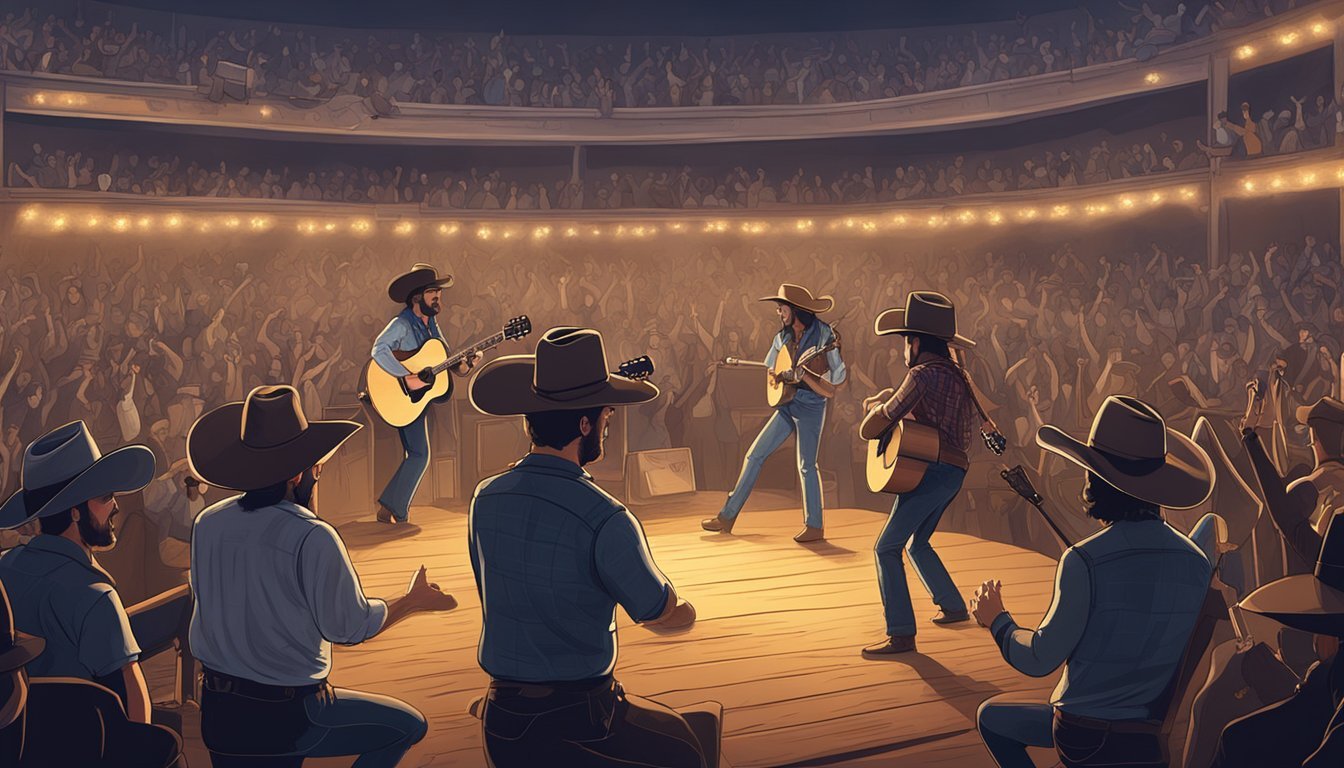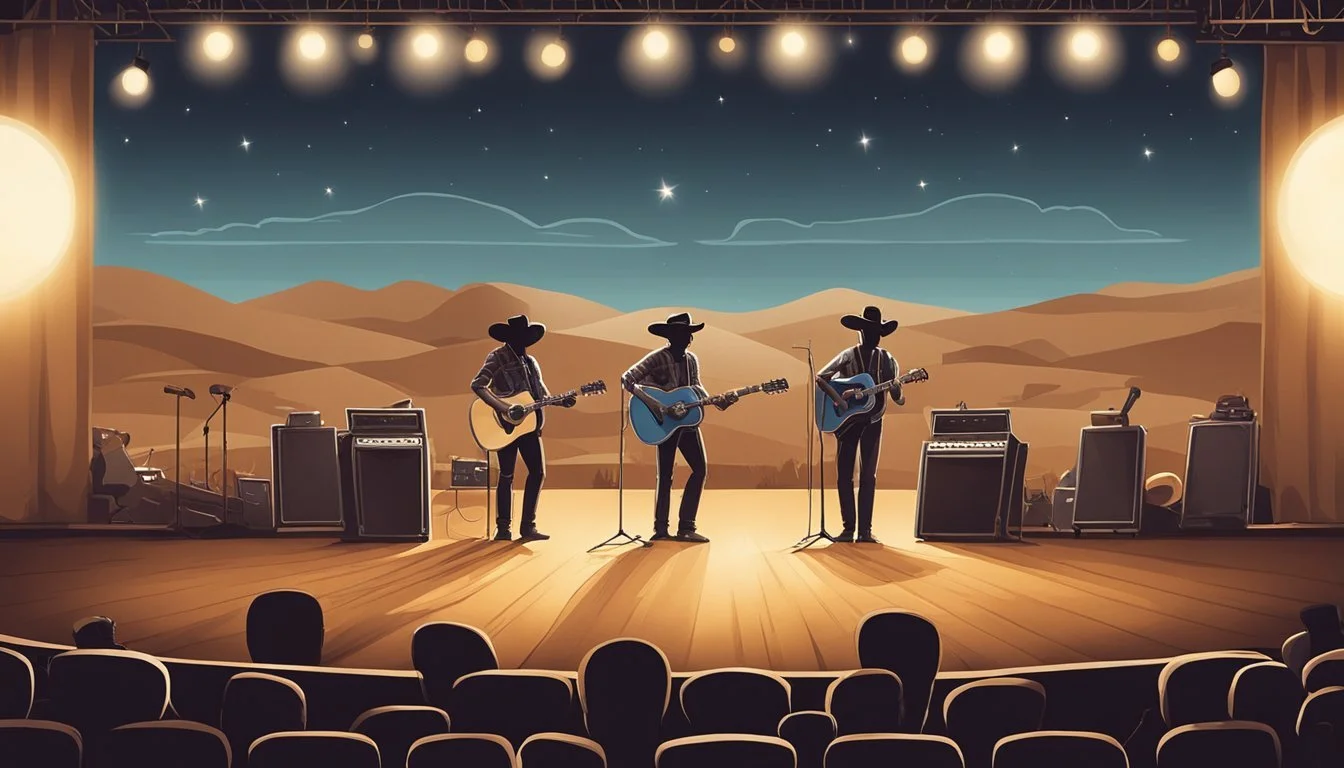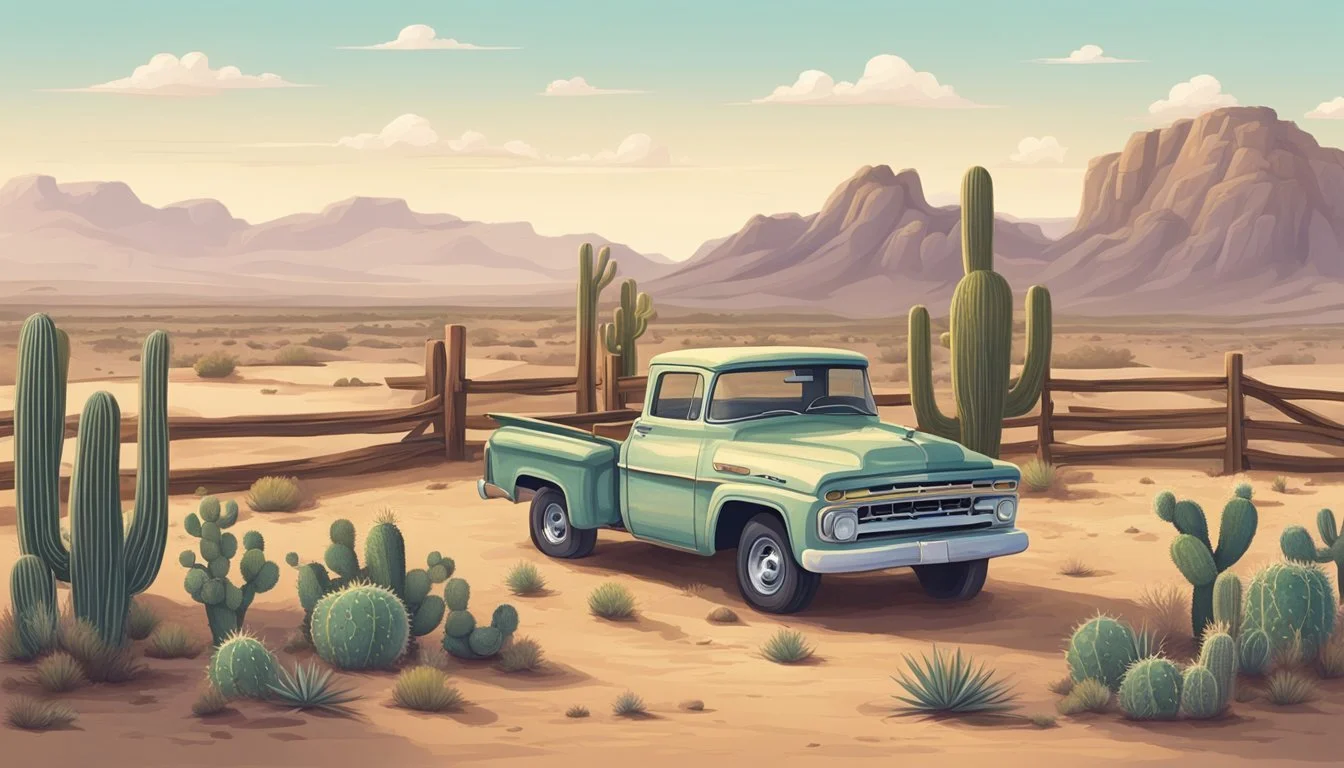6 Ways "Willie Nelson & Family" Explores the Outlaw Country Movement
A Deep Dive into Music History
The new docuseries "Willie Nelson & Family" offers viewers an intimate look at the life and career of country music legend Willie Nelson. This four-part series, directed by Emmy-winning filmmakers Thom Zimny and Oren Moverman, traces Nelson's journey from his early days in Nashville to his rise as an icon of the outlaw country movement.
The outlaw country subgenre, which Willie Nelson helped shape, rejected Nashville's commercial sound in favor of a rawer, more authentic approach. The docuseries explores how Nelson's unique musical style and independent spirit contributed to the emergence and popularity of this influential movement in country music. It delves into the various ways Nelson's career intersected with and helped define the outlaw country ethos.
1) Willie Nelson's Early Inspirations
Willie Nelson's musical journey began in his childhood in Abbott, Texas. He was deeply influenced by the gospel music he heard in church and the country sounds on the radio.
Nelson's grandfather introduced him to the guitar at age six, sparking a lifelong passion. He absorbed the styles of country legends like Hank Williams, Bob Wills, and Floyd Tillman.
The blues also played a significant role in shaping Nelson's sound. He admired the work of jazz guitarist Django Reinhardt, whose influence can be heard in Nelson's unique picking style.
Nelson's early songwriting was inspired by his rural upbringing and the stories of everyday people. He drew from personal experiences and observations of small-town life.
These diverse influences laid the foundation for Nelson's distinctive musical style. They helped shape his approach to songwriting and performance, setting the stage for his later contributions to the outlaw country movement.
2) Birth of Outlaw Country
The outlaw country movement emerged in the 1970s as a rebellion against the polished Nashville sound. Willie Nelson played a pivotal role in shaping this subgenre, which emphasized artistic freedom and authenticity.
Nelson's move from Nashville to Austin, Texas marked a turning point. He embraced a more raw, unfiltered approach to music-making that resonated with fans seeking something different from mainstream country.
The movement gained momentum with the release of albums like Nelson's "Shotgun Willie" and "Red Headed Stranger." These records showcased a stripped-down sound and more personal, introspective lyrics.
Other artists like Waylon Jennings, Merle Haggard, and Kris Kristofferson joined Nelson in pushing the boundaries of country music. They rejected the corporate control of Nashville and sought creative independence.
Outlaw country blended elements of rock, folk, and blues with traditional country sounds. This fusion appealed to a broader audience and helped revitalize the genre in the mid-1970s.
The "Willie Nelson & Family" docuseries explores how Nelson's unconventional style and rebellious spirit contributed to the birth and growth of the outlaw country movement.
3) The Highwaymen Collaboration
The Highwaymen supergroup marked a significant chapter in Willie Nelson's career and the outlaw country movement. Formed in 1985, the group brought together Nelson, Johnny Cash, Waylon Jennings, and Kris Kristofferson.
These four icons of country music combined their unique styles and rebellious spirits to create a powerful collaborative force. Their formation represented a culmination of the outlaw country ethos, showcasing its enduring influence and appeal.
The Highwaymen released three studio albums and toured extensively throughout their decade-long collaboration. Their music blended traditional country sounds with a rougher, more independent edge characteristic of the outlaw movement.
Their self-titled debut album featured the hit single "Highwayman," which topped the country music charts. This success demonstrated the continued relevance of outlaw country well into the 1980s and beyond.
Through The Highwaymen, Nelson further cemented his status as a key figure in outlaw country. The collaboration allowed him to share stages and recording studios with fellow pioneers of the movement, creating a lasting legacy in country music history.
4) "Mamas Don't Let Your Babies Grow Up to Be Cowboys" - Ed Bruce
"Mamas Don't Let Your Babies Grow Up to Be Cowboys" stands as a quintessential outlaw country anthem. Written by Ed Bruce and Patsy Bruce, the song gained widespread popularity through Willie Nelson and Waylon Jennings' rendition.
The lyrics paint a vivid picture of the cowboy lifestyle, highlighting both its allure and hardships. It cautions mothers against allowing their sons to pursue this challenging path, emphasizing the loneliness and instability that come with it.
Willie Nelson & Family's performances of this song, including their rendition at Farm Aid 2016, showcase its enduring appeal. The track's blend of honesty, humor, and melancholy resonates deeply with audiences, embodying the spirit of outlaw country.
The song's success demonstrates the genre's ability to connect with listeners through authentic storytelling and relatable themes. It captures the essence of the outlaw movement by romanticizing the cowboy life while acknowledging its difficulties.
"Mamas Don't Let Your Babies Grow Up to Be Cowboys" remains a staple in Willie Nelson's repertoire, serving as a testament to the lasting impact of outlaw country music.
5) Philosophies of Willie & Family
Willie Nelson's approach to life and music embodies several core philosophies. He values authenticity, eschewing polished Nashville production for a raw, genuine sound that reflects his Texas roots.
Freedom and independence are central to Willie's ethos. This manifests in his music, business decisions, and lifestyle choices. He famously defied industry norms by moving back to Texas and recording on his own terms.
Family holds immense importance for Willie. He often collaborates with relatives and maintains close ties with his extended musical family. This emphasis on kinship extends to his fans, whom he considers part of his broader family.
Willie embraces a laid-back, live-and-let-live attitude. He advocates for marijuana legalization and environmental causes, reflecting his belief in personal freedom and stewardship of the earth.
Resilience is another key philosophy. Willie has faced numerous setbacks but always bounces back, embodying the outlaw spirit of perseverance. His long career demonstrates an unwavering commitment to his craft and values.
6) Impact on Modern Country
"Willie Nelson & Family" showcases how the Outlaw Country movement continues to influence modern country music. The documentary highlights Nelson's role in shaping a more authentic and raw sound that resonates with contemporary artists.
Many current country musicians cite Nelson and his contemporaries as major inspirations. The series explores how their rebellious spirit and focus on songwriting craftsmanship have become integral to today's country scene.
The docuseries also examines how Outlaw Country's emphasis on artistic freedom has encouraged modern artists to push genre boundaries. This has led to a more diverse and experimental country music landscape.
Nelson's crossover appeal, as depicted in the series, has inspired current country artists to collaborate with musicians from other genres. This trend has helped country music reach new audiences and stay culturally relevant.
The documentary illustrates how Nelson's socially conscious lyrics have paved the way for modern country artists to address important issues in their music. This has resulted in more topically diverse and politically engaged country songs.
The Origins of Outlaw Country
Outlaw country emerged in the 1970s as a reaction to the polished Nashville sound. It emphasized creative freedom and authenticity, with artists taking control of their music and image.
Influential Artists and Bands
Willie Nelson played a pivotal role in shaping outlaw country. He moved from Nashville to Austin, Texas in 1972, embracing a more relaxed lifestyle and musical approach. His album "Shotgun Willie" (1973) marked a turning point in his career and the genre.
Waylon Jennings, another key figure, fought for creative control with his record label. His album "Honky Tonk Heroes" (1973) is considered a cornerstone of outlaw country.
Kris Kristofferson brought poetic lyrics and a more introspective style to the movement. His success as a songwriter and performer helped legitimize the outlaw approach.
Cultural and Social Context
The outlaw country movement coincided with broader cultural shifts in America. The counterculture of the 1960s influenced many artists, encouraging them to challenge established norms.
The Vietnam War and political unrest contributed to a desire for more authentic, socially conscious music. Outlaw country often addressed topics like drug use, anti-establishment sentiments, and personal freedom.
Rural-urban migration played a role, as artists brought country music to new audiences in cities. This expansion helped broaden the genre's appeal and diversify its sound.
Economic factors also influenced the movement. As record labels sought to maximize profits, some artists pushed back, demanding more control over their work and image.
Impact of 'Willie Nelson & Family' on Outlaw Country
The docuseries showcases Willie Nelson's pivotal role in shaping the outlaw country movement. It highlights his innovative musical style and enduring influence on generations of artists.
Musical Style and Innovation
Willie Nelson's unique approach to country music is prominently featured in the documentary. His blend of traditional country, jazz, and folk elements created a distinct sound that became a cornerstone of outlaw country. The series explores Nelson's unconventional guitar playing, emphasizing his signature nylon-string acoustic sound.
Nelson's songwriting prowess is also examined. His poetic lyrics and storytelling ability set him apart from mainstream Nashville artists of the time. The documentary delves into iconic songs like "Crazy" and "On the Road Again," illustrating how they challenged country music norms.
Legacy and Influence on Modern Artists
"Willie Nelson & Family" underscores the lasting impact of Nelson's work on contemporary musicians. It features interviews with current country stars who cite Nelson as a major influence. The series explores how Nelson's rebellious spirit and authenticity inspired artists to forge their own paths in the industry.
Nelson's role in founding major music festivals is highlighted, showing how these events helped popularize outlaw country. The documentary also examines how Nelson's advocacy for causes like farm aid and marijuana legalization shaped his public persona and influenced younger artists to use their platforms for social change.







